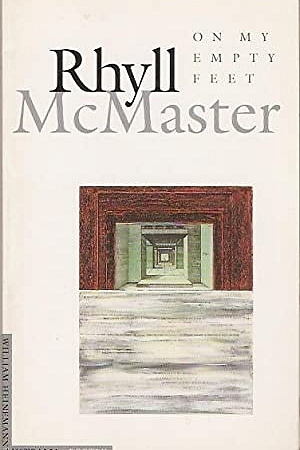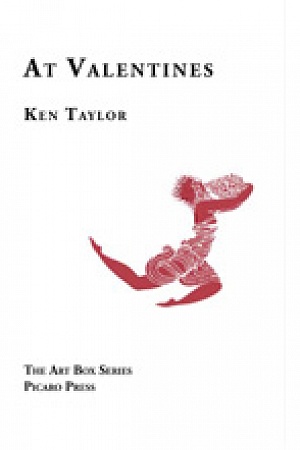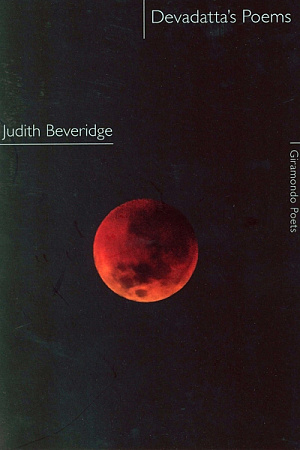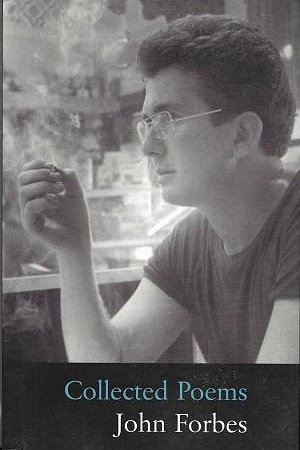Animal Warmth
Angus & Robertson, 63 pp, $12.95 pb
Animal Warmth by Philip Hodgins
Philip Hodgins writes with assurance and he has a fine ear for the rhythms of spoken Australian. This enables him to recreate the ‘tall story’ in poetic form with great facility and yet this very facility is at the same time limiting, since it restricts the writer largely to what has already been said (typically, he devotes seventeen pages in this collection to a poem entitled ‘The Way Things Were’). He becomes a reporter of stories, of histories and jokes rather than an explorer of the literary unknown. At times this leads him to take on not only the form of colloquial bar-room speech but the whole masculine ethos of this language with its prejudices, clichés, and resounding misogyny. In this world, poetry issues spontaneously and quite naturally from the mouths of common men (and I mean men) and for all Hodgins’s tongue in cheek humour, he comes dangerously close to celebrating what could be mocked:
although the place to hear the greatest poetry
was where the old blokes gathered near the scoreboard.
They had a grasp of metaphor and simile
that would have done the Martian poets proud.
The persona of the no-nonsense country boy, itself a well-worn convention, is maintained throughout Animal Warmth, and this is reflected in the subject matter which derives almost totally from a familiar mundane/ mythological vision of Australian rural life. Rarely personal, one of the few moments of intimacy occurs in the morose philosophy of ‘The Emotions’:
I don’t think they’re worth it.
They get in the way.
Clear days can be clouded
just because of them.
Even the dinner I held last night
was nearly a flop
because the risotto went cold
and gluggy like baby-food
The warmth of Animal Warmth is generated by a nostalgia for a vision of country life more ideal than real, filled with the tangibly physical presences of cows, dogs, horses and sheep. The cover painting by Elioth Gruner depicts a man alone with his cattle bathed in an aura of light cast by the rising sun. Hodgins acknowledges the practical difficulties of the lot of the farmer, but this only intensifies his passion for it. In the long poem ‘Second Thoughts on The Georgics’, Hodgins reworks Virgil, maintaining the didactic content and verbal artistry while mustering his disillusionment:
You’d have to be out of you’re mind to want to run a farm these days.
I mean who on earth’s going to give you
a fair price for your produce?
What with the Russians, who can’t believe their luck,
and those pricks in the EEC subsidizing
mountains and lakes of everything under
the sun
What comes through most clearly in the ‘wealth of description and advice is a passion for life on the land, a passion that runs through other poems such as ‘Pregnant Cow’, ‘Milk’, ‘Standard Hay Bales’, ‘Superphosphate’, and ‘Until the Cows Come Home’. ‘The Cattle Show’, written in sestina form, is an excellent example of the disparity Hodgins is fond of creating between high-flown technique and down-to-earth subject matter:
The mood was tense at the annual cattle show.
Inside the pavilion a dozen well-groomed cows
were tied up along the rail while the judge
stood silently in the middle of the ring and the owners looked on nervously.
Each one had faith
that their particular cow was going to win.
Hodgins exploits this conflict between form and content to humorous effect although the tendency is to allow this humour to stifle the promptings of a more serious voice. In the presence of death, a situation full of speculative possibilities, it is the obstinately ordinary which captures his interest:
The graves spread out from each corner to keep
the four denominations apart, as if in death the concept of a separate group
could mean as much to some as it did in life,
and right there in the middle was a small shed
whose fibro walls and rusty galvo roof looked out of place.
This absence of critical depth in his work is responsible for moments of clumsiness in the collection. Lines such as: ‘To be déraciné for such a time would be worse than death itself, in a way’ and ‘I stood there thinking about it. It wasn’t much. But it was better than a slap in the guts with a dead fish’ do little more than fill out space. Elsewhere, Hodgins falls back into some surprising clichés about sex. In ‘Melbourne’ he writes:
Later that night
he advised me on sex. Old enough to bleed, he said,
old enough to butcher.
But I already knew about sex.
I’d seen the bull going for it heaps of times.
Hodgins reports this ‘witticism’ (more spontaneous wisdom from the common man) without irony and affirms the old cliché about a country boy’s knowledge of sex without acknowledging the obvious differences between animal copulation and human sexuality. Of course, here the boy’s attitude could be interpreted as obviously naïve. Yet in ‘The Bull’, the misogyny of the adult narrator reveals itself quite openly as he equates the two forms of coupling in the following lines:
As soon as the bull was let in with them he shoved his
way round the yard
sniffing the loose wet cunts
and screwing up his nose in anticipation.
The most conspicuous and puzzling aspect of this collection is the absence of any feminine presence. Even the mandatory farmer’s wife merits little more than a mention tucked away amongst stanzas devoted to the footy team, Digga, and dad. Without speculating further on the writer’s attitude to women, this omission is clearly the strongest criticism of the very world (and ultimately the language which encapsulates it) that Hodgins evokes with such commitment.









Leave a comment
If you are an ABR subscriber, you will need to sign in to post a comment.
If you have forgotten your sign in details, or if you receive an error message when trying to submit your comment, please email your comment (and the name of the article to which it relates) to ABR Comments. We will review your comment and, subject to approval, we will post it under your name.
Please note that all comments must be approved by ABR and comply with our Terms & Conditions.